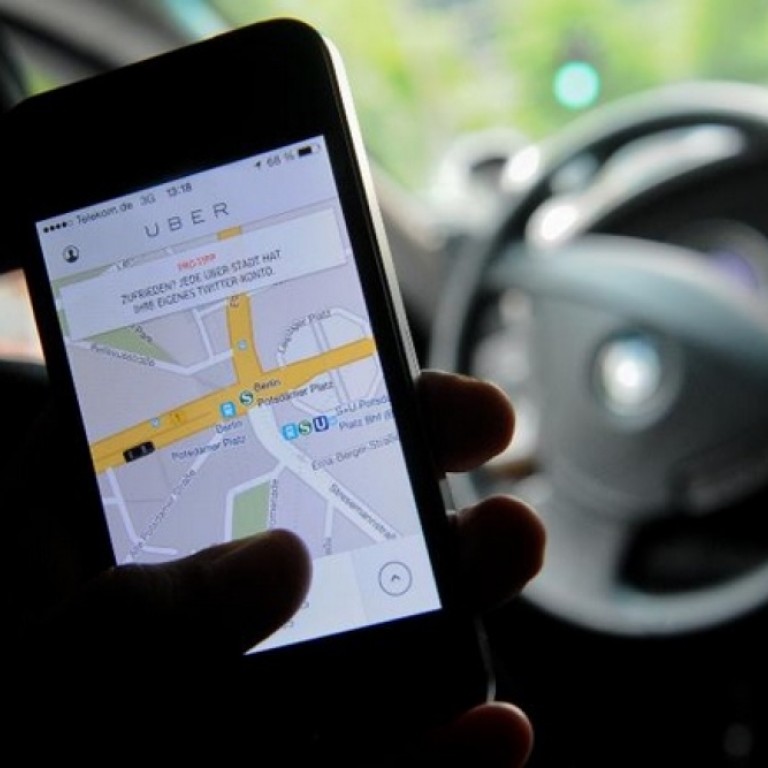
New | Chinese riders, government take opposing stance on taxi apps like Uber
Shenzhen-based wine dealer Daniel Lin Shuhao likes to tell the story of how a ride arranged through car-booking service Uber led to a business deal with the driver, another wine business owner who happened to be trying his hand at chauffeuring.
Shenzhen-based wine dealer Daniel Lin Shuhao likes to tell the story of how a ride arranged through car-booking service Uber led to a business deal with the driver, another wine business owner who happened to be trying his hand at chauffeuring.
“He told me he registered to be an Uber driver earlier this month, just for fun to experience something new on the internet” Lin said.
The tale is just one example of how ride service apps are creating new opportunities and impacting social patterns in China. Functioning as much like social networking apps as they do to solve practical transport problems, Uber and its domestic rivals Kuaidi and Didi are attracting growing numbers of car owners looking to take advantage of the surging popularity of the services themselves.
“Such car-hailing apps create a new consumer market and new lifestyle in urban cities on the mainland no matter the authorities welcome the change or not,” said Peng Peng, a political and economic researcher at the Guangzhou Academy of Social Sciences.
“For example, a growing number of young people in Guangzhou now turn to use these apps to call a car because of cheap price, good quality of the car and good services of the driver too. All things considered, it's just much better than taking a taxi,” Peng said.
“They didn't get used to taking taxi previously because it’s unaffordable. Now these taxi apps change their lifestyle as the youth become big fans of such apps.” Peng said, “It can also take the good use of private cars and help solve traffic jams in rush hours” Peng added.
“With no doubt, the consumers love it. But the taxi industry in China is a typical government monopoly trade. Would the government like to learn and get along with the market that is already changed by the Internet development?"
Official statistics on the industry are not available, but local media in the southern city of Guangzhou have said that more than 6,100 private vehicles using Didi’s car-hailing apps run on the city’s roads daily. Some 1,000 operate in Shenzhen, close to the border with Hong Kong.
“Every of my friends who has a good car is talking about joining the car-hailing business, from the boss running a small online shop to the children of the rich,” said Lin, the wine dealer.
Demand is also growing from businesses looking to use the services to both cut costs and impress clients.
“We use the Didi service to bring potential clients to our office and take them back,” said Wendy Liu, operating manager of a Shenzhen-based serviced office company.
“We paid 200 yuan (US$32) to hire a Mercedes Benz for two hours. In the past, we needed to pay at least 400 yuan to rent such a car.” Liu said.
For drivers the services offer high income with a low entry cost and relatively little hassle, especially compared to operatring a taxi, which requires an expensive licence fee.
“The job is very free with little stress,” said Yuan Yi, who signed up to be driver with both Kuaidi and Didi last month.
“A taxi driver has to pay the government-related taxi company a licence fee of about 11,000 yuan a month. We don’t need to pay a cent to Didi and can take 80 per cent of each deal,” he said.
He added that since all users of the apps in China must register under their real names and give bank account details, risks to personal safety are low. The bigger risk, he said, is a government crackdown on the business.
Earlier this year China banned private cars from offering taxi services via mobile-phone apps. On Thursday, Officials from the transport, public security and industry and commerce bureaus in Guangzhou raided Uber’s local office over claims that was organising an illegal taxi service.
But a spokesman for Uber said on Friday that its services remained operational. The company said it aimed to offer more alternative means of transport to ease traffic congestion and air pollution in cities, and would continue to cooperate with the relevant authorities.

